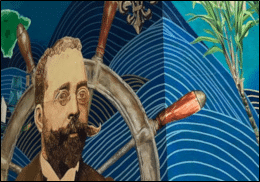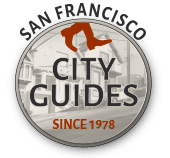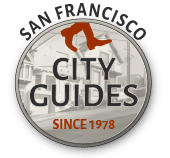Find Your Tour
Tuesday October 22
- 11:00 am

1840s San Francisco and the Astonishing Legacy of America’s “First Black Millionaire”
How did he do it? A biracial sea captain named William Leidesdorff played a central role in the American conquest of San Francisco, created multiple essential institutions, and amassed one of the most enormous fortunes in California… all while passing as white. Revered by his neighbors, many of whom openly despised the race he kept secret, Leidesdorff became America’s “First Black Millionaire” while still in his thirties. Come discover San Francisco in its earliest days and learn about this fascinating individual.
- 11:00 am

1850's San Francisco: Paris Of The Pacific
Everyone in France heard the rumors. Or saw the news reports "of gold mines...fabulous riches awaiting only the hands of miners to be picked up." Some packed their bags and set off for California. These French left their mark on the culture of the booming city. The French influenced society, especially in food and fashion. Without them, it's hard to imagine San Francisco becoming our sophisticated, cosmopolitan metropolis.
- 12:00 pm

For much of the early 20th century, nobody traversed the Bay without going through the Ferry Building. At its peak in the 1930s, it was the second-busiest travel hub in the world, shuttling more than 50,000 people both to and from San Francisco each day. When the city built its famous bridges, ferry travel dropped dramatically, and the building suffered for decades. In the ‘90s the Ferry Building transformed into a world-class food market focusing on local artisan creations. Today, it remains an iconic landmark of the waterfront (and a popular establishing shot for movies set in San Francisco). Join us on a wondrous trip through the centerpiece of the shoreline.
- 1:00 pm

After the successful 1894 Mid-Winter Exposition San Francisco decided to keep the Japanese Village exhibit. Makoto Hagiwara was hired to be the new manager of the Garden and immediately set about expanding the Garden three-fold to its size today. An impressive variety of flora greets you as you enter a Japanese inspired wonderland of small scenes created throughout the Garden. The peace and quiet of the Garden encourages one to slow down and be mindful of the surroundings - A perfect walk for those seeking a peaceful afternoon...
- 1:00 pm

The 1915 Panama-Pacific Exhibition was a momentous occasion for the city of San Francisco. Only a decade removed from the most disastrous earthquake in the state’s history, city officials felt it was the perfect time to showcase what San Francisco had in store for the future. Architect Bernard Maybeck had a brilliant vision for its centerpiece structure: he wanted to invoke the imagery of Roman ruins, creating “a sense of sadness, modified by the feeling that beauty has a soothing influence.” Learn everything about the extravagant 1915 exhibition and the work that went into its preservation as we saunter through the Palace’s grounds.
- 1:30 pm

City Hall and the Civic Center
After the original City Hall perished in the 1906 earthquake, San Francisco had a chance to think bigger the second time around. Civic Center is a campus that houses some of the city’s most important governmental and cultural institutions. Minimal walking — but maximum awe.
- 1:30 pm

Historic Market Street: Path Of Gold
When surveyor Jasper O’Farrell completed his 1847 proposal for Market Street, an abnormally wide boulevard cutting diagonally through the heart of the city, it wasn’t popular. Landowning pioneers accused him of “wanton disregard” for their rights. But over time opinions changed. Come and stroll the street that unites San Francisco. Learn how Market Street has evolved with the times, always remaining relevant. Hear epic tales born on the Path, from Gold Rush stories to cable cars, vintage street cars and the construction of BART.
- 2:00 pm

Architectural Gems South of Market
Join us for a captivating stroll through one of our most intriguing and often overlooked neighborhoods. Delve into 150 years of urban evolution, and an array of architectural styles, from Victorian Gothic to 21stc Contemporary. See the juxtaposition of historic landmarks with modern skyscrapers, each witnessing the city's past and present. Learn about transformation through massive redevelopment projects, while discovering protected hidden gems. Stunning open spaces offer panoramic views. This flat, leisurely walk shows a rich tapestry of architectural, socio-economic and cultural history. Explore the soul of the city, here, one step at a time.




















